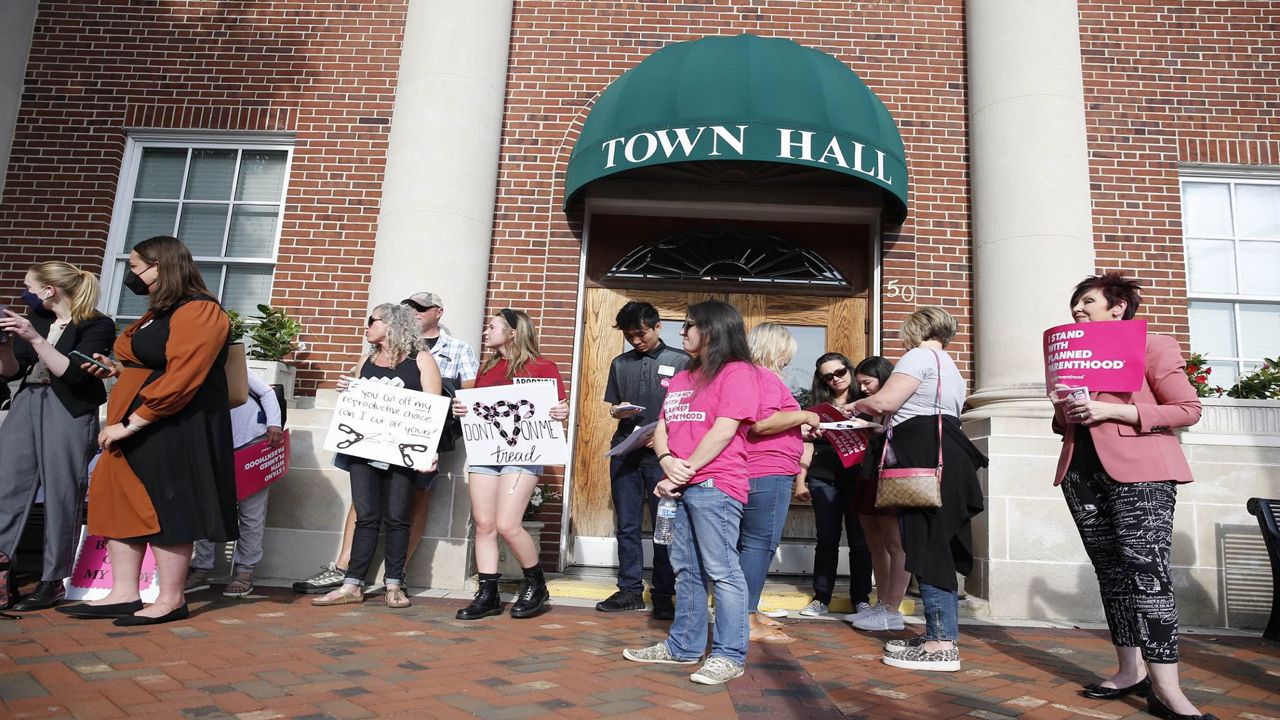LEBANON, Ohio — Lebanon has agreed to amend sections of its abortion ban ordinance and not to enforce parts of the ban, a Thursday court filing shows.
The city north of Cincinnati has agreed not to enforce the sections of the ordinance that prohibit providing transportation, instructions or money for an abortion, a "stipulation" filed in federal court Thursday shows. The city also will not enforce the section that makes it illegal to provide “abortion doula” services.
The Enquirer called and left a message for Lebanon's city attorney, but did not immediately receive a response.
Mark Lee Dickson, the executive director of Sanctuary Cities for the Unborn, said in a statement Thursday night Lebanon's abortion ban remains in effect and will be enforced and vigorously defended."
"The city council will be strengthening and expanding the ordinance in the coming weeks," Dickson said.
Lebanon, a city of 20,841, last May became the first in Ohio to ban abortions.
The American Civil Liberties Union of Ohio and Democracy Forward filed a lawsuit on May 11 over the ordinance, which makes it illegal to provide or aid an abortion within city limits, including providing money, transportation or instructions for an abortion.
Violating the ban is a misdemeanor, punishable by up to six months in jail and a $1,000 fine.
There are no abortion clinics in Lebanon.
City Manager Scott Brunka told The Enquirer on Tuesday that no one has been fined under the ordinance since it was passed.
The ACLU claimed Lebanon's ordinance is too vague and sweeping and violates residents' rights to due process and free speech.
The ordinance makes it illegal to coerce a pregnant mother to have an abortion against her will and to possess or distribute abortion-inducing drugs in Lebanon. These sections can still be enforced.
The ACLU of Ohio said in its release that the lawsuit will continue "until people’s rights are fully protected."
"We will remain vigilant and monitor how Lebanon attempts to address the ways in which its extreme abortion ban violates the U.S. and Ohio constitutions," Celina Coming, ACLU of Ohio communications director, said in the released.
A Supreme Court opinion draft by Associate Justice Samuel Alito leaked in early May suggests the court is considering overturning Roe v. Wade, which stood for decades as the legal precedent granting abortion access in the United States.
To get more news and information from this partner, subscribe here.




